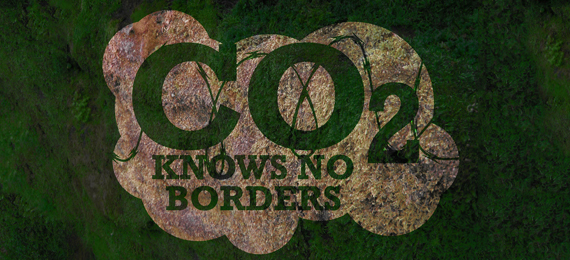
Climate change around the world and why it is a cause of concern. If you think the COVID lockdown has helped the earth recover from the climate change crisis then you are wrong. The lockdown did bring down the carbon emission rates but it is considered as a ‘mere blip’ by the World Meteorological Organisation.
What Is Climate Change?
Climate is considered as the average temperature of a specific location that has existed over several years. A shift in this temperature to something hotter or colder could impact the flora and fauna of the place damaging several activities dependent on natural resources.
What Is Global Warming?
When the climate shifts to hotter temperatures than usual due to the exhaustion of fossil fuels and heat-trapping greenhouse gases like CO2, CFC’s, etc. it causes global warming.
Which Is the First Carbon Negative Country in the World?
- A. Bhutan
- B. Bangladesh
- C. India
- D. Pakistan
Global warming will affect the survival of vulnerable organisms and melt ice caps leading to the destruction of coastal habitats.
What Causes Climate Change Around the World?
The primary causes of global warming are the emission of greenhouse gases through the burning of fossil fuels, conversion of forests into agricultural land, increased livestock farms, improper waste disposal from industries, polluting the ocean, mining, oil drilling, overuse of power plants, fertilizers and other nitrogenous substances.
Impact of Climate Change Crisis
China is the largest carbon-emitting country and Bhutan is the first carbon negative country in the world. Here is everything 2021 and 2021 climate change records.
Unbearable Heat
Siberia reached 38℃ in June. The hottest recorded temperature in the Arctic Circle. Largest wildfires in California and Colorado. ‘Black Summer’ is like wildfires in Australia.
Ocean
The routine El Nino effect (warm ocean water in the Pacific) was overthrown by the La Nino effect (Colder ocean water in the Pacific). This brought down the global heat levels. The poles are melting 100 times faster and India is seeing greener oceans due to algal blooms caused by industrial waste. Eastern England and parts of North Wales will go underwater by 2050.
Soil
The Amazon rainforest in Brazil is deteriorating rapidly. The U.K., India, China, parts of the U.S., Germany, and Africa experienced record floods in 2020 and 2021. This damaged several lives and resulted in soil erosion. Somalia will be wiped out due to droughts.
Air
Inhaling Beijing’s air is equal to smoking a pack of cigarettes every day. Bangladesh has the worst air quality in the world.
Organisms Affected by Climate Change
The coral reef produces 80% of the world oxygen and ocean pollution is affecting them. Several animals have woken from hibernation early and are left stranded during migration due to the lack of uniform climate change. Penguins, polar bears, piping plovers, and several others are at risk of extinction.
How to Stop Climate Change?
The amount of CO2 in the world has reached 417 parts per million. The last CO2 contribution was this high was 4 million years ago when the sea level was even higher in the Pliocene era.
Earth has been seeing record levels of CO2 emissions in the past year and they are increasing rapidly. COP26 is planning ways to reduce this threshold as soon as possible by implementing several measures on industrial waste disposable.
Apart from that climate change can be reduced by shifting to renewable energy sources, using recyclable products and avoiding plastics, making the utmost use of resources like water, minerals, soil etc, reducing the wastage of clean water. It is also important to be mindful of the changes in the natural environment and remove potential threats to prevent the impact of climate change around the world.